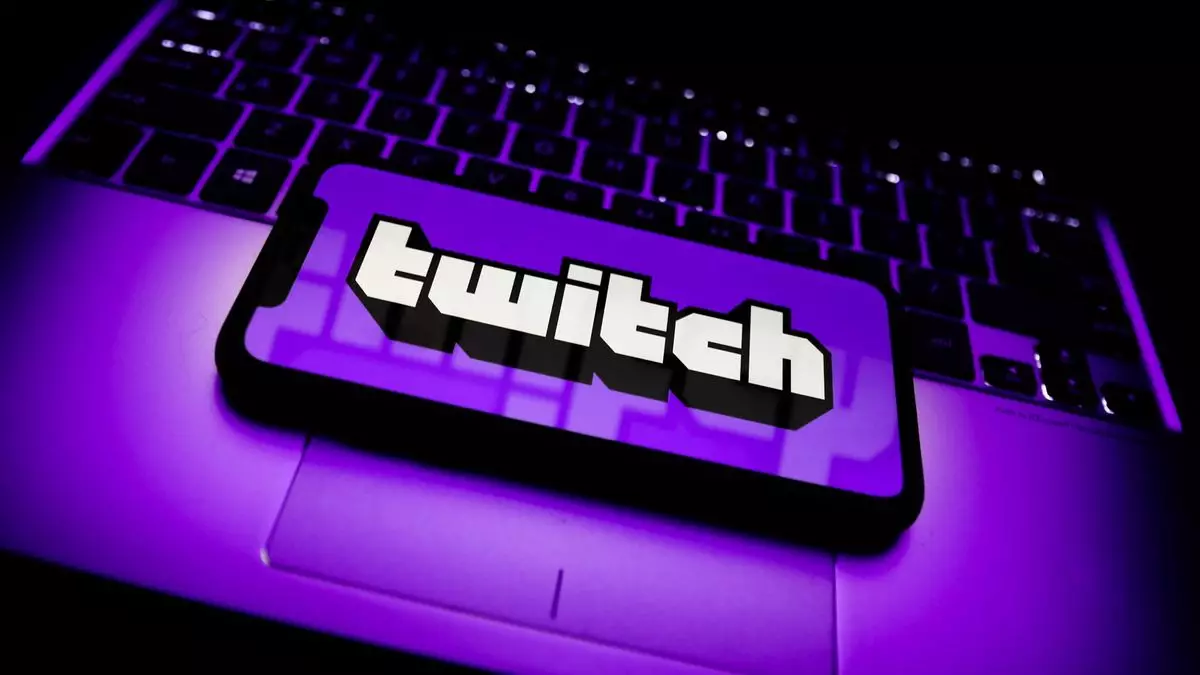In a recent move, Twitch modified its policy regarding streams that address “politics and sensitive social issues.” Following significant backlash from various community members and organizations, Twitch clarified that streamers sharing their “lived experience” are exempt from implementing a Content Classification Label (CCL). However, this adjustment reveals the complexity and controversy surrounding content moderation on the platform. Originally enacted to tackle rising accusations of Islamophobia and antisemitism on Twitch, the modifications have sparked further debate, particularly within marginalized communities who feel their voices may still be stifled.
The initial policy rollout came amid heightened tensions and incidents that highlighted the darker facets of online discourse. Following a particularly egregious incident involving popular streamer Zack “Asmongold,” who faced significant backlash for an outburst against Palestinians, Twitch undertook to impose stricter regulations. Dan Clancy, the CEO of Twitch, emphasized that there is “no place on Twitch for racism, hatred, or harassment,” signaling a commitment to improving the site’s environment. However, the original guidelines were perceived as overly broad, potentially constraining discussions essential to the identities and experiences of LGBTQ+ and minority streamers.
The frustration surrounding these regulations indicates a fundamental misunderstanding of the complexities associated with discussions of race, gender, and sexuality. Communities that have often been subject to marginalization felt that labeling their existence—an expression of identity—as political could inadvertently undermine their efforts for visibility and acceptance.
What Changes Were Implemented?
The latest iteration of the policy shifts the focus from categorical restrictions to a more nuanced understanding of context. Twitch has reassured users that a content classification label is only necessary when discussions of sensitive topics are the main focus of the stream and are addressed in a “polarizing or inflammatory manner.” This change aims to remove some of the burdens previously placed on streamers discussing essential civil rights issues, reducing the expectation that advocacy or personal storytelling must be categorized as politically motivated.
Nevertheless, while the intention behind these adjustments is commendable, the vagueness of terms like “polarizing” and “inflammatory” raises concerns about enforcement and interpretation. Who determines what constitutes a harmful narrative? One observer aptly noted that discussions on LGBTQ+ rights or personal experiences with discrimination could easily be reported by those who oppose such viewpoints, thereby perpetuating the very biases the policy intended to alleviate.
The changes to Twitch’s policy have spurred mixed reactions, particularly among LGBTQ+ streamers who remain concerned about the implications of labeling. One poignant question raised in community forums revolved around the subjective nature of what defines a discussion as “political.” For instance, if a streamer discusses their abortion rights or experiences as a trans individual, will those topics be relegated to the realm of political discourse or remain personal? This labyrinthine categorization seems set to create a chilling effect, sufficient to deter open discourse on critical issues and silencing voices that need to be heard.
A post on Twitch’s UserVoice feedback forum illustrates the community’s discontent, where over 38,000 users rallied against the original guidelines. A subsequent appeal for complete removal of the sensitive categories garnered over 2,200 additional votes. The call underscores a pervasive sentiment that merely clarifying wording does little to change the overarching implications for marginalized voices on Twitch, particularly as the platform continues to grapple with the balance between content moderation and freedom of expression.
The current wave of adjustments reveals an ongoing struggle to define the scope of acceptable dialogue within the often tumultuous landscape of online interaction. Although Twitch’s amendment hints at progress, whether those changes tangibly benefit marginalized communities is still under scrutiny. Further clarity in their guidelines is essential, particularly to ameliorate fears in the LGBTQ+ community and other minority groups about potential retaliatory action from fringe elements among its user base.
Ultimately, in a platform that thrives on diverse voices, redefining what constitutes political content has immense implications. It may be beneficial for Twitch to consult with a broader spectrum of users, especially those from historically disenfranchised backgrounds, to create a more inclusive and informed policy framework. Until then, the community will likely continue to navigate uncertain discourse, where personal narrative and political dialogue risk being entangled, often to the detriment of authentic engagement.


Leave a Reply